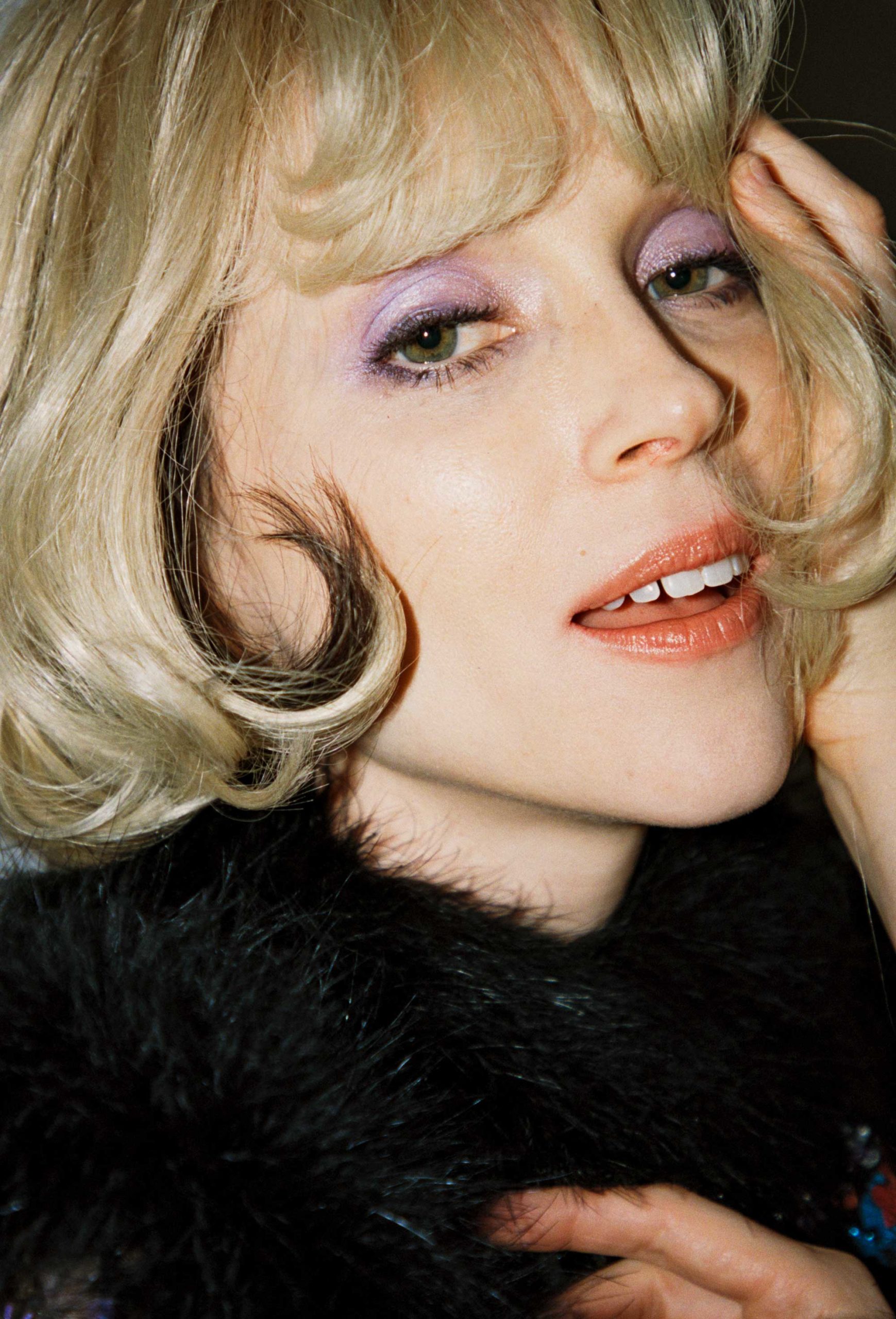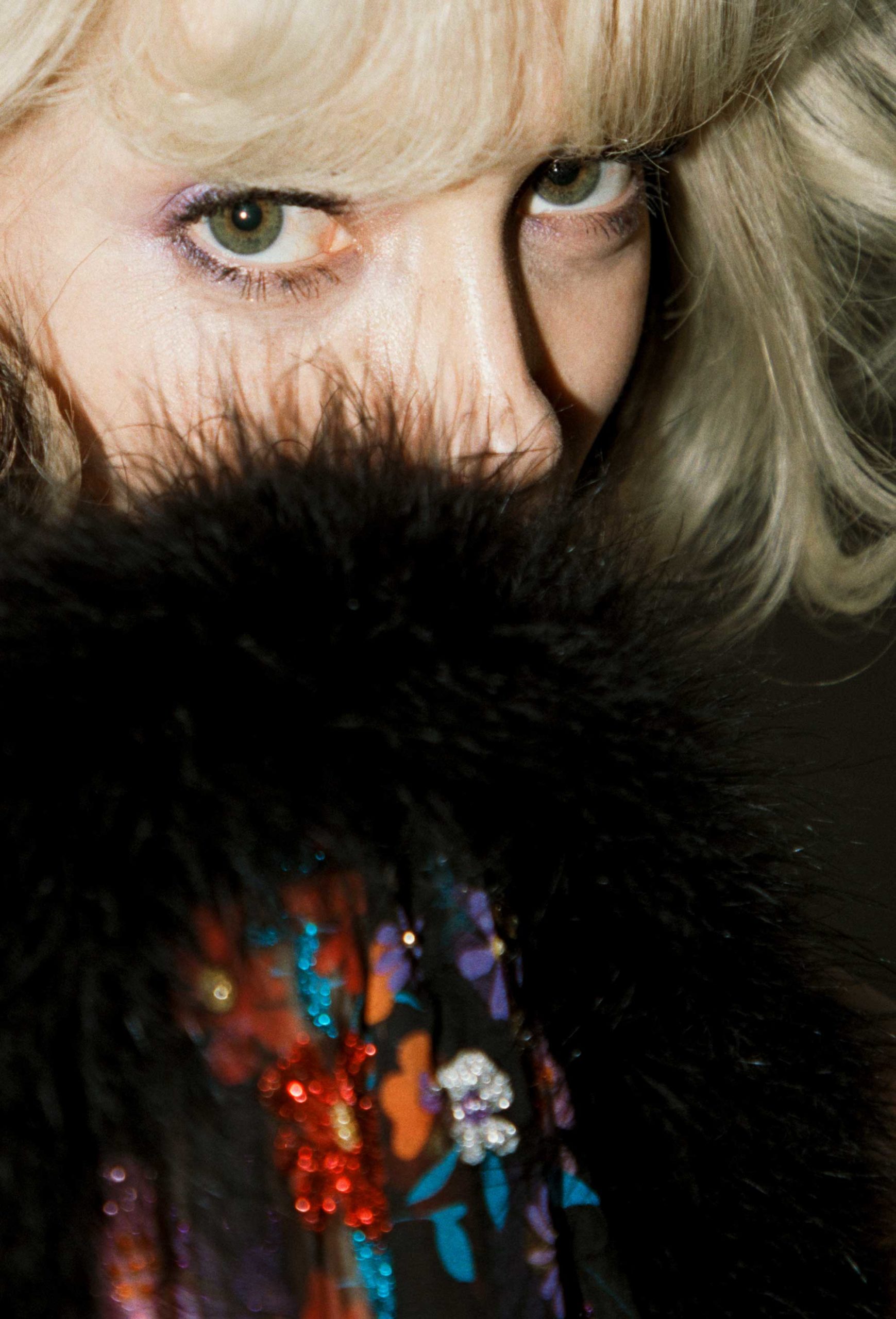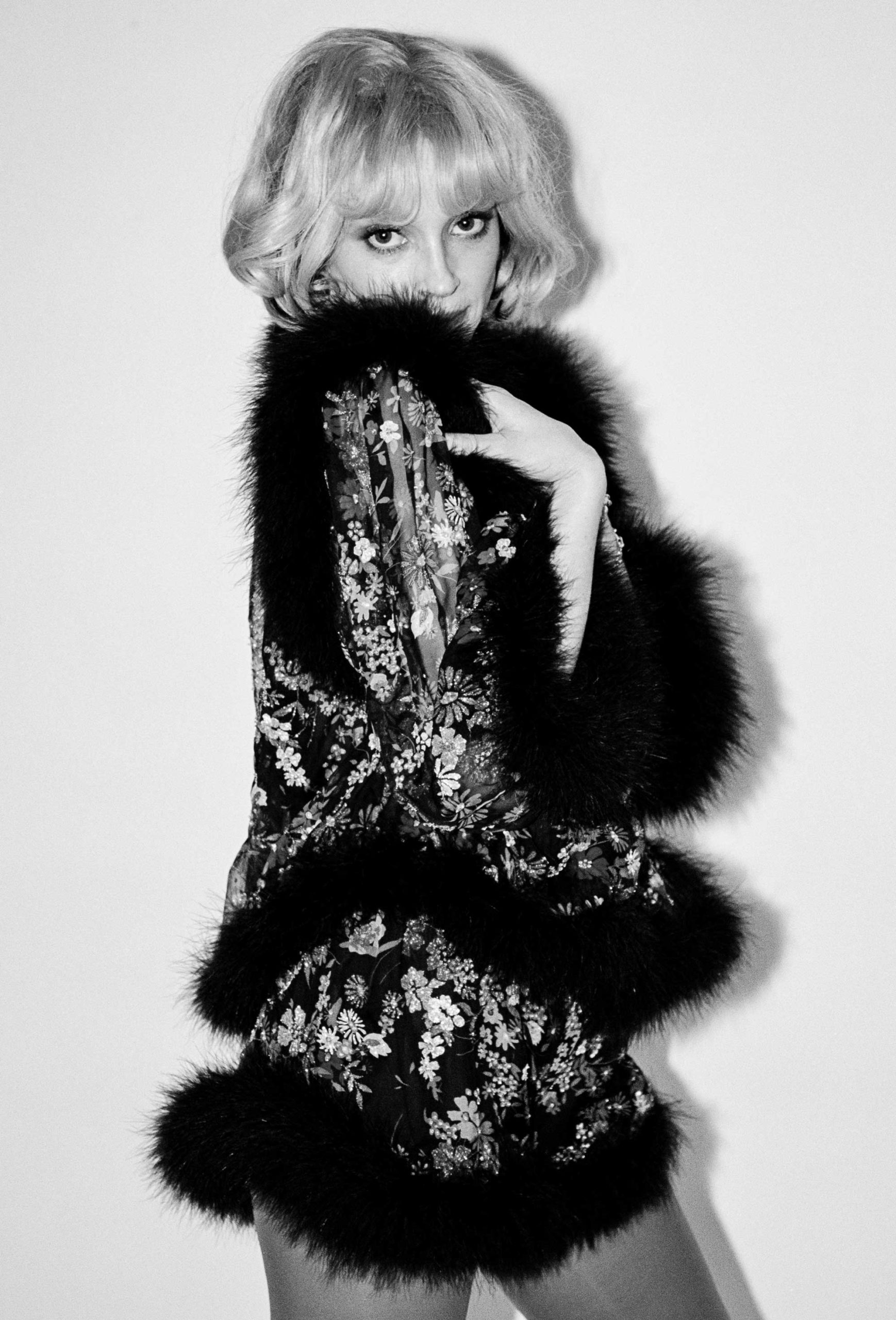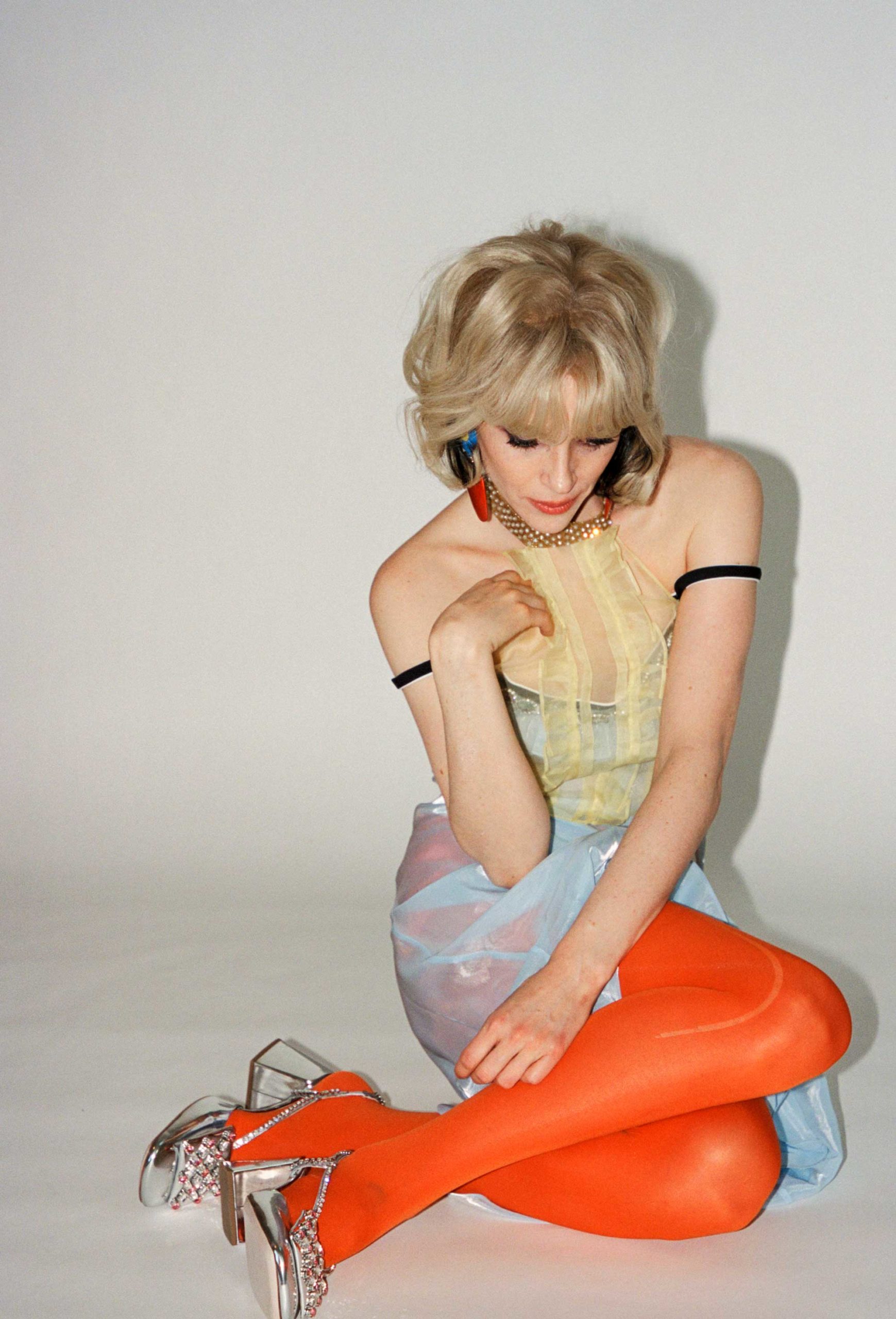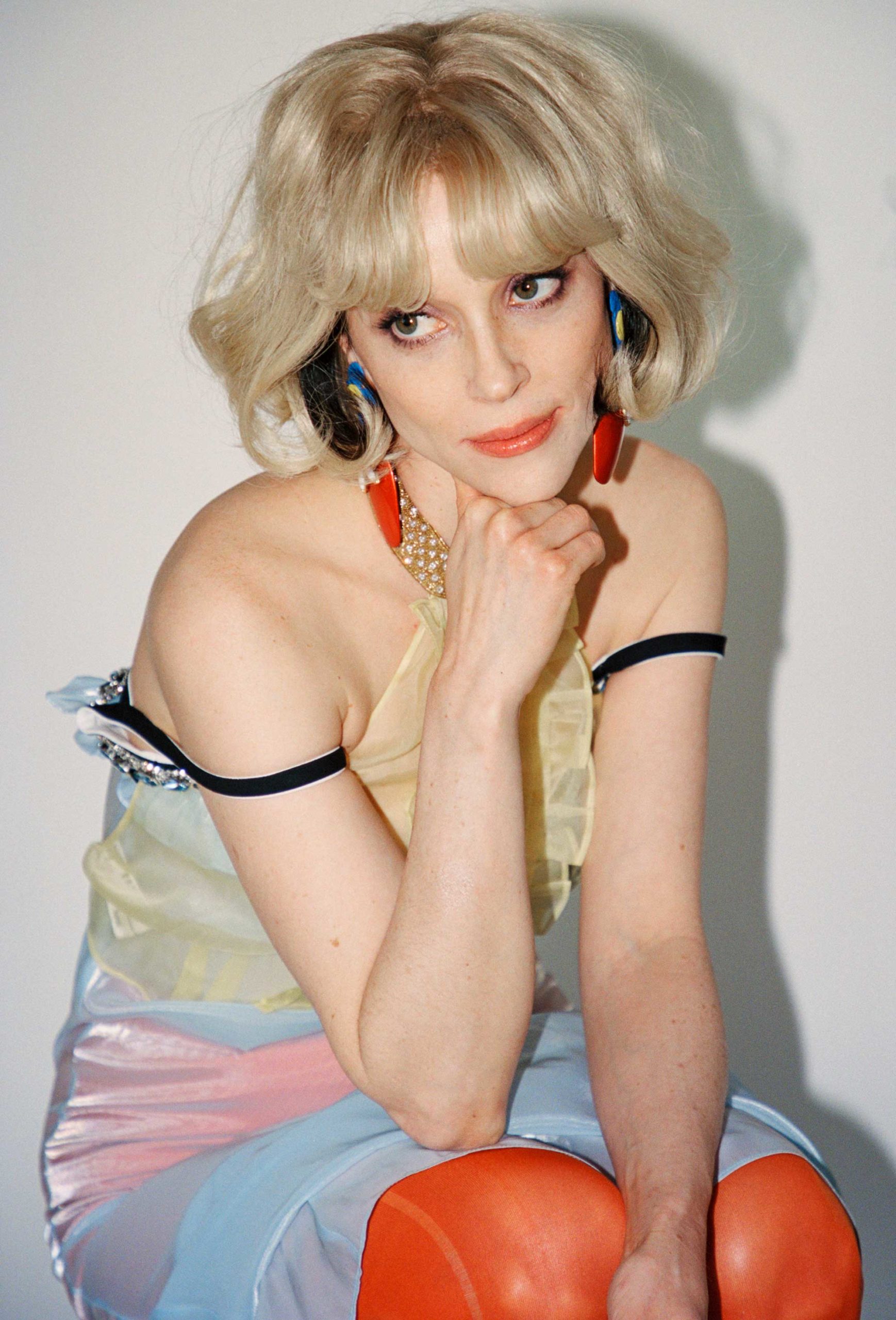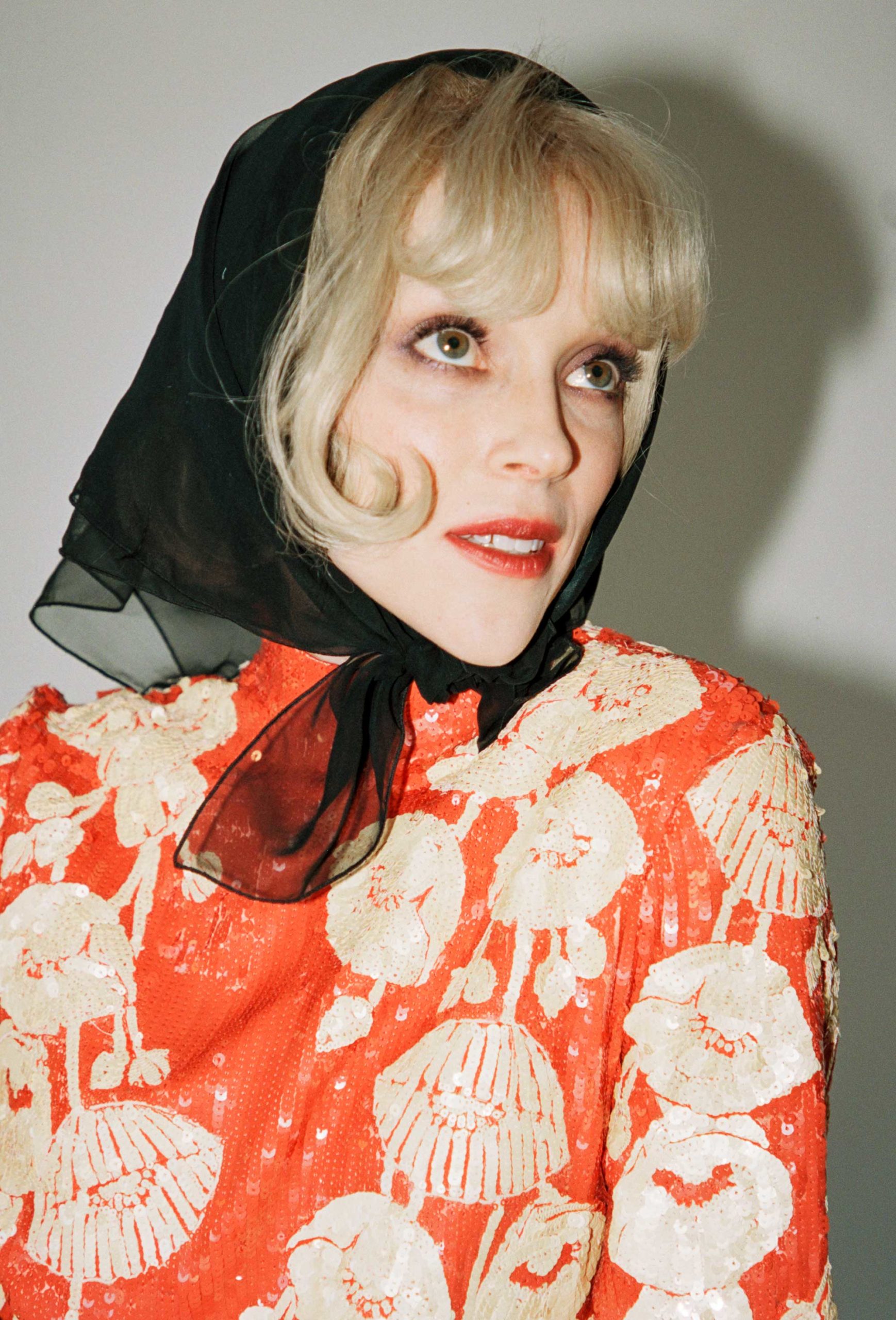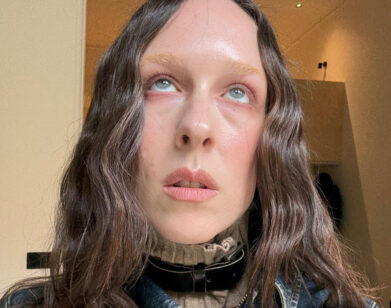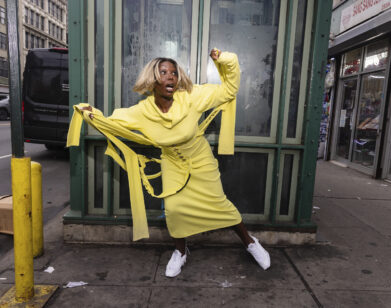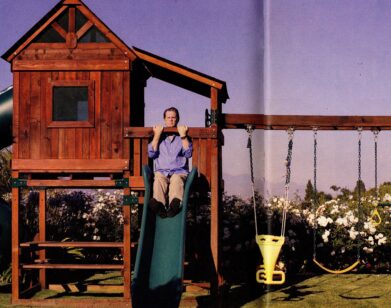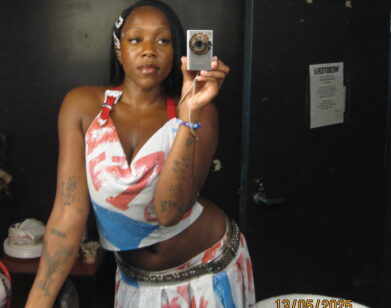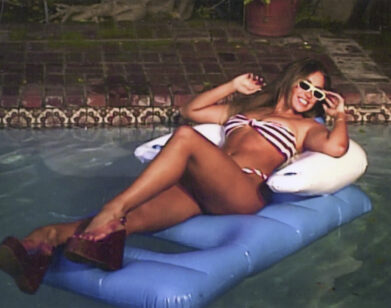music
St. Vincent and the Stars of PEN15 Have a Gazillion Questions for Each Other
In an industry crowded with artists who claim singularity, there is perhaps no musician more deserving of the label than St. Vincent. With her signature Ernie Ball Music Man guitar and the cheekbones of a Picasso, the musician, born Annie Clark, has situated herself at the center of rock royalty in the digital age, shape-shifting her sound and image with each subsequent album. After the success of her fifth studio release, 2017’s Masseduction—and its acoustic twin, MassEducation—the two-time Grammy winner is venturing into territory that expands her vision while rooting it firmly in her childhood. Her latest offering, Daddy’s Home, was written as her father was being released from prison following a ten-year sentence for “white-collar nonsense.” A decidedly retro turn for the forward-looking artist, it is an homage to her father’s vinyl collection, a sonic swirl of Steely Dan, Nina Simone, and Lou Reed. But as she tells Anna Konkle and Maya Erskine, the women behind the Hulu series PEN15 (a St. Vincent favorite), a lot has happened during the last decade. She’s daddy now. —SARAH NECHAMKIN
———
ST. VINCENT: I was just helping old people get COVID shots.
ANNA KONKLE: Oh my god, you’re amazing.
ST. VINCENT: I’m not that amazing.
KONKLE: I think you are.
ST. VINCENT: Well, thank you. That’s very nice.
KONKLE: Thank you for asking us to do this. We were kind of blown away. The new album is incredible.
MAYA ERSKINE: I’m obsessed. You know when you feel like you’ve discovered gold before other people? That’s what it feels like. It feels like a secret.
KONKLE: We got the hot tip.
ERSKINE: This is kind of embarrassing to admit, but I never listen to albums from beginning to end anymore. I haven’t done this since listening to The Beatles. It was a magical experience.
ST. VINCENT: That’s very nice of you. I love your show so much. I get so lost in how completely believable both of you are as 13-year-old girls that I realize I’m rooting for a grown woman to kiss a 13-year-old boy. Which is a weird feeling to have. There’s a very specific thing, Anna, that you do physically in the show—it takes me back so hard. That thing where you hold your arm across your stomach, as if that’s a natural way for a person to stand.
KONKLE: Yeah.
ST. VINCENT: You’re trying to make it seem totally cool and natural, but it’s obviously not something anybody would do unless they had their arm in a sling. And I specifically remember being in seventh grade, and suddenly being aware of my body in a way that I never was before.
ERSKINE: That took me back, too, Anna, because I wouldn’t think of that until I saw you do it. There were so many girls with such a specific way of holding themselves. It felt normal and comfortable, but it looked insane.
KONKLE: I know, and I think it’s secretly what I still want to do, which is so fucked up.
ST. VINCENT: And, Maya, can I just say, as a high school theater nerd, I loved how you went down the theater-kid versus crew-and-tech route. Somehow, never the lines shall meet.
KONKLE: Is there a similar dynamic on tour?
ST. VINCENT: I never would have thought of it like that, but there is a crew mentality that is a little different than the musicians’ mentality. And probably the crew thinks of the musicians like, “Oh these pussies, they can barely hack it.”
KONKLE: Being on set, it’s the same thing. Both sides are vital, but the real filmmaking is the crew.
ERSKINE: I miss being in school doing theater because that was sort of my safe haven, and I haven’t had that in so long. An old acting teacher reached out and said one of their students did an essay on PEN15 and nostalgia. Were you in a band in middle school?
ST. VINCENT: Yes, I was. There were only a few boys at my school who had a band. They all loved Metallica and Megadeth and Iron Maiden, and they already claimed the guitar parts of that. But they did need a bass player because as a kid nobody really wants to play bass because it’s not flashy. I had never really played bass, but that was my ticket into the band. I do remember that we played AC/DC at a talent show. In addition to a choker that I wore, I had that hairstyle you pull off in the show, Maya, which is long and straight and sort of flat to your head, but then with those teeny tiny bangs.
ERSKINE: The wisp.
ST. VINCENT: Yeah, the wisp.
ERSKINE: You sound like you were cool. If you were in my middle school and you were playing AC/DC in a band, you were cool.
ST. VINCENT: I mean, it was Texas in the ’90s. No one was listening to Bikini Kill at the PTA.
KONKLE: My clarinet was not very cool. To be a girl and to be into art or to be really smart, both of those things weren’t cool. Automatically you were kind of an outcast.
ERSKINE: At my school, it was cool to be in a band. There was a jazz band in middle school, and my dad’s a jazz musician, so they had a party for the school and I asked to sing “L-O-V-E.” I sang it in front of everyone, and that was when I was taping my boobs down, and there’s a picture where I have quadruple tits because I’m wearing a tube bra in the middle on my nipples so you can see four layers on my boobs.
ST. VINCENT: Oh my god.
ERSKINE: It’s really a sad moment because I was really vulnerable and trying to sing my heart out to jazz music. It was not cute.
ST. VINCENT: I love that in the show your dad plays in a Steely Dan cover band. Steely Dan is one of my favorite bands of all time, so that really resonates.
ERSKINE: How do you write? Do you write with other people? Do you start with melodies or do you start with lyrics?
ST. VINCENT: It’s all over the map. Sometimes I’ll wake up with a melody in my head and I’ll go record it on my iPhone before I forget it. And then sometimes I have the whole story and it’s written out and I just have to find the melody that suits it. The music part is very easy. I could sit and make that all day, but making songs is a different thing. A song has to have a heart and a point of view. So, you were taping your boobs down. Did you want to be flat-chested? Were you like, “I want to look like Kate Moss”?
ERSKINE: No, I wish I’d wanted to look like Kate Moss. I wasn’t quite there then. It was odd because I was masturbating all the time, so I was very mature in that way, but then in terms of being around my family or at school, I still wanted to be a kid. I was sort of right in the middle, and that felt monstrous to me. I was neither woman nor child—I was beast.
KONKLE: I did the same thing. I used Band-Aids for a very, very long time.
ST. VINCENT: I feel like I only just discovered the things that people actually wear, like the little petal thing. I can’t imagine knowing how to do it the “right” way as a kid. Of course you’re going to grab the Band-Aids or the tissue.
KONKLE: The questions you had to ask then were like, “What do you do if your nipples are showing through your shirt and you’re in fifth grade?” There was no one to ask. Maybe my mom, if I had courage back then, but now there’s the internet where kids can type in their question and no one ever needs to know. I think there’s probably a lot of good and bad to that.
ERSKINE: There was a really crazy fantasy I had, and I asked my friend, “Women in heels with men on leashes—do you think about that?” She was like, “What? Ew, no,” and I was like, “Oh, right, right, right.” You didn’t have the internet to ask those questions in private so you felt pure shame for bringing anything up. You became inventive, in a way.
ST. VINCENT: Yeah, the creativity is very impressive. In my case, I was lucky I had an older sister who could help me. But I swear to god, if she hadn’t told me how to put a tampon in, I probably would have shoved it up my urethra. How the hell do you know how to do anything? Diagrams are garbage.
KONKLE: Here’s a question for both of you: If you had the internet as a kid, how do you think you would be different now?
ST. VINCENT: It’s hard to know. I’m really glad that the only people who have access to my most humiliating teen years are the people who see the boxes of pictures at my mom’s house. I remember I played a gig, I was probably 18 or something. I had a little band and we played a show, and my dad and stepmom had gone to Italy on a big Italian trip, and they came back and brought me a pair of leather pants, which didn’t fit at all. I shouldn’t have been wearing them, but I was like, “Wow, you guys, these are from Italy. They’re fancy.” So I wore them for the show.
ERSKINE: Totally.
ST. VINCENT: And then I watched back the video, because of course my mother was there and of course she had the video camera for my gig at a bar, and it gave me the craziest camel toe in the world. If that was on Instagram, it would haunt me. We didn’t really know how we looked back then. Maybe your mom takes a picture of you before you’re going to the dance with your date and corsage, and you can think to yourself, “I look pretty cool,” and you only find out once you get the pictures back that you looked like a freak. There was a suspension of disbelief that allowed you to imagine that you were someone else.
KONKLE: There weren’t a lot of outlets for creativity except playing alone in my basement. I probably would have put myself on the internet. I would have made my own YouTube show.
ERSKINE: Oh my god, I wish you had. But now what I notice is the opposite of that, where in the moment I’m like, “Ugh, I look like shit,” and I’m already picking apart the picture, and then months later or years later I’ll look back and be like, “What was I talking about? I looked great.”
ST. VINCENT: Part of it might be that if you can look at the picture in the moment, you also have a window of time and some agency to change what it is you’re seeing. And if you’re a creator, you’re like, “I can create a better image of this at this moment,” but that’s very stressful and very taxing. Also, who cares?
KONKLE: A lot of people have called your work experimental, which is always a funny word to me. We’ve been called that, too. Do you have any sort of affinity for the songs you made at the very beginning that nobody has heard? The first screening that we went to of PEN15, I remember being with an audience and laughing when nobody else laughed.
ST. VINCENT: The things that you think are most interesting about your work, nine times out of ten, are not at all what other people are excited about. And that’s fine, because it’s music to be experienced by other people. But “experimental” is a funny one. There are certain words that feel kind of hilariously coded. A word like “ambitious”—that’s a kick in the guts because it means, “Well, it was a big idea, you didn’t get there but we see that you tried.” The other one that I used to get a lot was “quirky.”
ERSKINE: Ugh.
ST. VINCENT: Like, come on. “Quirky” is on the spectrum of “nice.” Somebody who says, “Oh yeah, they’re really nice,” that’s not a compliment. “Nice” is, “I couldn’t think of anything else to say.”
ERSKINE: I used to feel that way about “cute.” If art is called “cute,” I want to kill myself.
KONKLE: A lot of people, maybe more than you have ever imagined, listen to your music now. How did you approach this new album? Could you block out that noise, or was it motivating for you?
ST. VINCENT: Well, it’s a combo platter. I think it’s always good to feel like the underdog, because if you feel like the underdog then you have something to prove, and if you have something to prove, then you’re going to work harder and you’re not going to take anything for granted. But to be honest, I don’t really think about it. I don’t get intimidated by the idea that there might be more people listening, because I know that the reason people listen to you is because you’ve stuck to your guns and you’ve tried different things and you weren’t afraid. Why would you second-guess it after you have their attention? There’s a social contract between artist and fan.
- Dress, Top, and Shoes by Miu Miu. Earrings by Saint Laurent by Anthony Vaccarello. Tights by Gucci.
- Dress, Top, and Shoes by Miu Miu. Earrings by Saint Laurent by Anthony Vaccarello. Tights by Gucci.
ERSKINE: I love hearing that, because it’s something we talk about all the time. It’s scary when you start the next season or the next album right after the first one comes out. You feel like you’ve evolved and you want to push it forward, but then there’s also this fear in the back of your mind of, “Shit, am I straying too far from what originally worked?”
ST. VINCENT: You just have to file it away and not let it mess with the flow. I have a question: Have you had any crazy fan experiences? Is it like, “I got a free coffee at Intelligentsia,” or is it like, “I have a stalker?” What is the spectrum?
KONKLE: When the first season came out, I was kind of gobsmacked because people would share their stories on the street of how they grew up. I think the weird thing is realizing that I’m very much seen as 13, and I’ve felt that a lot in the business. It’s really weird to run a show and write it and do all these things, and then to realize that I’m still being regarded as 13. I just had a baby a month ago, which feels like a lie even saying out loud.
ST. VINCENT: Oh, congrats.
KONKLE: Thanks. And Maya is having a child soon.
ST. VINCENT: Oh my god.
ERSKINE: We’re both going to be moms.
KONKLE: All of a sudden people, even some that we work with, are talking to me as a woman instead of a girl. Like, “Oh, I guess she is a woman if she can have a baby.”
ERSKINE: I always thought no one would recognize me because I look so different on the show. But people on the street were like, “Maya!” And I was like, “Yeah, I guess I look the same. Cool.” When it first came out, I couldn’t believe we put all that out there. We were so in the fray of building this show and making it and working nonstop that we didn’t sit to think for a second about that vulnerability of being exposed, and then it was out. And then I remember we were in a hotel room and I have a video of Anna reacting— we had maybe two followers on Instagram, and then within an hour, we started getting messages, and that was so foreign to us. It was mind-boggling to even think that another person might relate to it. That was the first feeling that we had put our deepest, darkest things out there and it was accepted.
ST. VINCENT: Vulnerability is a real superpower. So much of my work is autobiographical, so much is sort of imagined narrative. I don’t know if it’s helpful to the interpretation or the consumption of the music to know exactly what’s real life and what’s imagination. One thing about this particular record, Daddy’s Home—part of it is a sort of homage to my dad, who was just released from prison. He was in prison for ten years for white- collar nonsense.
ERSKINE: Wow.
ST. VINCENT: There’s a song on the record called “Daddy’s Home,” and it talks about going to see him and signing autographs. It’s an homage to Steely Dan, because that’s music that he introduced me to. I wrote another record very much about this subject when he went in, called Strange Mercy, but I didn’t talk about it. I have a massive family who I’m really close with, and we were all kind of shell-shocked trying to get through it all, but at that time I didn’t know what to say about it because I didn’t really know where I was with it personally. But it’s been ten years, and the tables have turned. I’m ten years older. I’m daddy now.
ERSKINE: When we go into anything that exposes something about our family, a talk is had. Did you talk to your father about it?
ST. VINCENT: I played him and the rest of the family the songs, and he was just like, “Yeah, sounds great. Oh yeah, Steely Dan!” I’m not ashamed of him, he’s not ashamed of it. People are people, and life happens. Everything’s complicated. And in America, a story of friends and family being incarcerated is unfortunately not in any way a unique story.
ERSKINE: I remember when we were going to do a talk show for the first time, and I was going to bring up a story that involves my dad and a picture, and me saying that I was masturbating right before the picture. He had seen the show and everything, but at that point I had to have that conversation with him, and he called me panicked right before we went on and he was like, “I don’t feel good about this.” I felt like I had crossed a line, because I didn’t really check in that much. So I learned a lesson there. It isn’t just me.
ST. VINCENT: It’s your real mom in the show. You had to talk to her about the masturbation episode because she walks in on you.
ERSKINE: That was tough, because I hid it so well from my parents. But then after the show came out, I had the most intimate open conversation with my whole family about it, and it was wild. It was a huge relief.
KONKLE: We grew up in the year 2000 with boys being like, “I talk to my dad about jerking off and he gave me a magazine,” or whatever. And women, up until we’re in our 30s, are like, “Ew, this is gross. My parents are going to hate me.” It’s so fucked up. I’m going to be attempting to write a memoir next year, and I’m having talks with my mom about all of these subjects with the press release coming out, showing her the log line talking about mental health and insinuations about our family. And it’s so complicated. It’s my story, but it’s hers, too. You tell her what you’re going to say and she’s like, “No, you can’t say that.”
ST. VINCENT: What do you do?
KONKLE: I don’t know. Half the time I bring things up that happened in my family, they’re like, “What? No it didn’t, what are you talking about?” I think people cope that way, and memory is different for everybody. But then it brings up the most important thing, which is how it felt to the individual and their personal experience. I guess that’s what art is.
ST. VINCENT: Are all writers just cannibals?
ERSKINE: Yeah.
KONKLE: Yeah.
ST. VINCENT: How are you able to be true to your experience and write something that is very emotionally resonant that sometimes implicates other people? I think as long as you’re not always just implicating other people. You know,I am a participant in my life as well. I’m culpable.
ERSKINE: Nora Ephron talks about this—“Everything is copy.” If you’re around a writer, beware. Any experience involving a writer, they’re going to soak that up.
ST. VINCENT: Well, I still have a gazillion questions, but I’m happy to chit-chat offline, too.
KONKLE: Let’s be friends.
———
Hair: Pamela Neal using Color Wow Hair Care at Exclusive Artists
Makeup: Hinakoat The Wall Group
Photography Assistant: Isabelle Fields
Fashion Assistant: Sara Cummings

